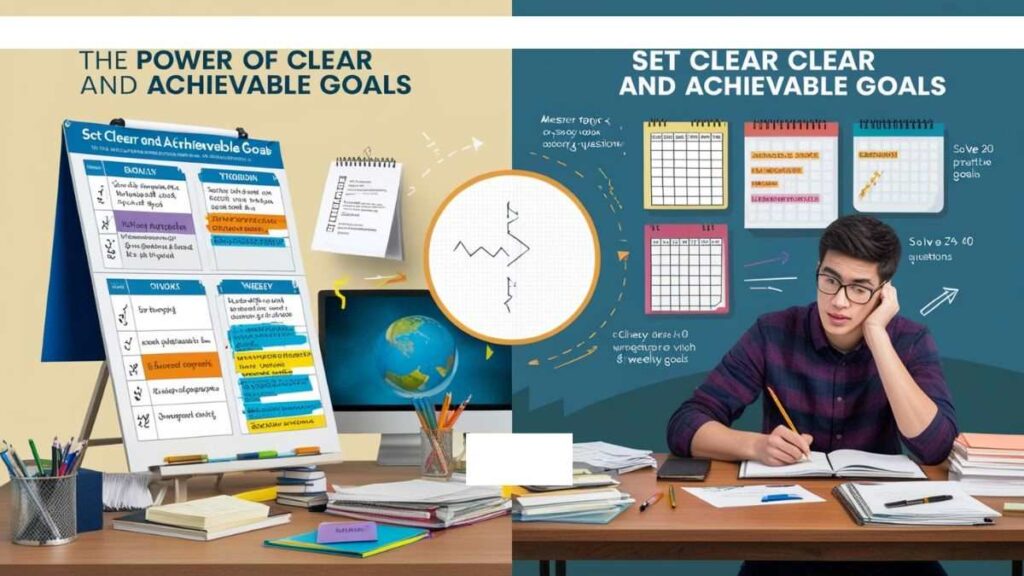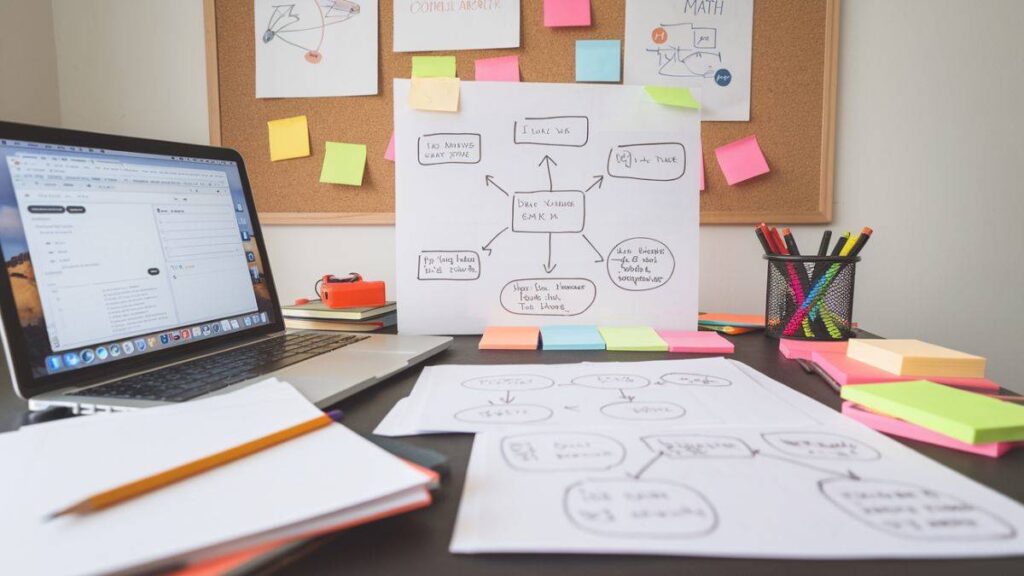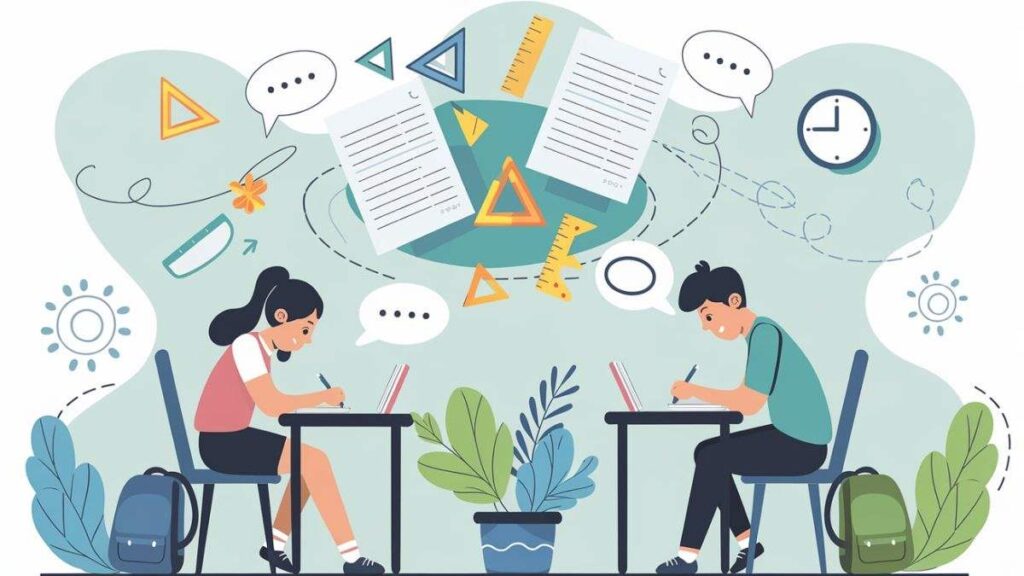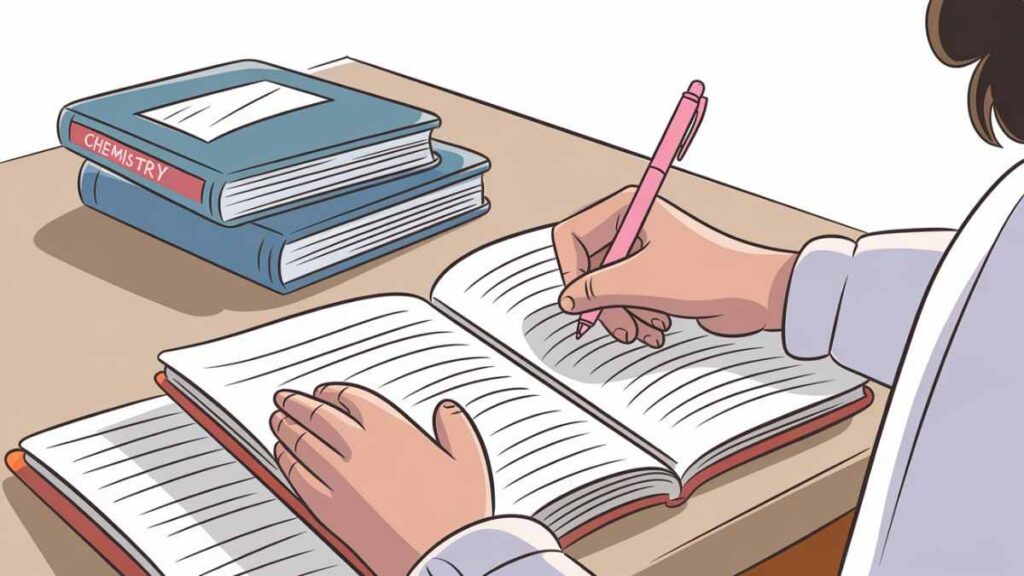Are you already feeling anxious about your upcoming class 10 board exams? Does the thought of completing the entire syllabus give you the chills? Don’t worry! Unnecessary stress only leads to health issues. As anxiety levels rise, your eating and sleeping habits tend to decline. Remember, exams are an inevitable part of a student’s academic journey, but they don’t have to be a painful experience. Psychologists recommend staying relaxed and keeping a clear mind to excel in your final exams.
Table of Contents
11 Effective Strategies for Preparing for Class 10 Board Exams
1. Complete Your Syllabus on Time

Begin your preparation by paying close attention to classroom lessons and systematically covering the entire syllabus. Identify the chapter-wise marking scheme for each subject – Maths, Physics, Chemistry, and Biology – and plan your study accordingly. Make it a habit to revise daily what was taught in class while the information is still fresh in your mind.
2. Prioritize Key Topics

Gather all the relevant study materials and organize your important notes for easy access during last-minute revisions. Focus on the key topics from the NCERT books, as most exam questions are drawn from these texts. Pay special attention to the exercises at the end of each chapter in the NCERT books to deepen your understanding.
3. Use Flashcards for Memorization

Boost your memory by creating flashcards, and breaking down crucial topics into bullet points, lists, diagrams, and formulas. The information on your flashcards will serve as memory triggers, helping you recall lengthy details referenced by these cues. You can also use these cards for quick revisions when time is short.
4. Teach What You’ve Learned

Explaining your answers to someone else helps reinforce your understanding, highlighting areas that need more attention. Ask your parents, siblings, or friends to quiz you. By teaching them what you know, you’ll better grasp the material yourself.
5. Utilize Flow Charts and Diagrams

Visual aids can be incredibly effective when reviewing your subjects. Challenge yourself to write down everything you know about a topic, then pinpoint the gaps in your knowledge. Condense your notes into one-page diagrams to quickly recall essential information.
6. Review Past Year’s Question Papers

Practice with previous years’ question papers to get familiar with the exam format. Try answering these questions within the allocated time and compare your responses with your notes to ensure accuracy.
7. Avoid Last-Minute Cramming

Stick to what you already know when studying the night before the exam. Trying to learn new material at the last minute will only increase your anxiety. Instead, focus on revising your notes and practicing key questions.
8. Maintain Your Health

While exams can be stressful, too much stress can hinder your preparation. Remember to look after your health, eat nutritious meals, and get enough sleep. A healthy mind and body are crucial during exams. After studying, take time to relax, eat well to boost your energy, get a good night’s rest, and approach your exams with a positive mindset.
9. Minimize Distractions

Some students prefer to study with background noise, like music, TV, or chatting with friends. However, research suggests that these distractions can reduce the amount of information retained. It’s better to choose instrumental music if you need background noise to stay focused.
10. Focus on High-Weightage Topics

To score well in CBSE Class 10, it’s essential to prioritize topics based on their importance and marks. Go through the syllabus, list the topics according to their weightage, and allocate specific study hours to master them. This strategy will help you maximize your scores.
11. Practice Writing Answers

Another key tip for Class 10 preparation is to focus on delivering clear, well-structured, and concise answers. Use simple language instead of jargon to convey a professional tone. Additionally, keeping your answer sheet neat and avoiding overwriting or excessive corrections is crucial, as it improves the reading experience for the examiners.
By following these strategies, you’ll be well-prepared to tackle your Class 10 board exams with confidence.
What relaxation techniques can help reduce exam anxiety?
Exam anxiety is a common experience among students, often resulting in stress and decreased performance. Implementing effective relaxation techniques can significantly alleviate anxiety and foster a more positive outlook during exam periods. A variety of methods, including breathing exercises, mindfulness practices, physical activity, and engaging in enjoyable activities, can help students manage their anxiety effectively.
1. Breathing Techniques
Focusing on breathing is a powerful way to combat exam anxiety. Students can practice deep breathing exercises, such as the 4-7-8 technique, where they inhale for four seconds, hold their breath for seven seconds, and exhale for eight seconds. This method can help calm the nervous system and reduce stress levels. Moreover, simply concentrating on breathing for a minute can slow the heart rate and alleviate feelings of panic.
2. Mindfulness and Meditation
Mindfulness and meditation practices are effective in reducing anxiety. Techniques such as guided imagery—where one imagines a peaceful scene—and mindfulness exercises that involve paying attention to the present moment can enhance calmness and focus. Spending a few minutes a day practicing these techniques may improve one’s ability to handle stress during exams.
3. Physical Activity
Engaging in regular physical activity is another beneficial method for reducing exam anxiety. Exercise releases endorphins, which are known to improve mood and decrease stress. Activities like jogging, yoga, or even taking short walks can help students maintain their mental well-being during intense study periods.
4. Scheduled Breaks
Taking short breaks during study sessions can significantly decrease anxiety levels. Students are encouraged to adopt techniques such as the Pomodoro method, which involves studying for a set time before taking brief breaks. Resting not only refreshes the mind but also enhances productivity when returning to study tasks.
5. Healthy Lifestyle Choices
Maintaining a balanced diet and adequate sleep are essential for managing exam anxiety. Consuming brain-boosting foods, such as nuts and leafy greens, and ensuring good hydration support cognitive function and help in stress management. Additionally, limiting caffeine intake can prevent increased feelings of jitteriness and anxiety.
